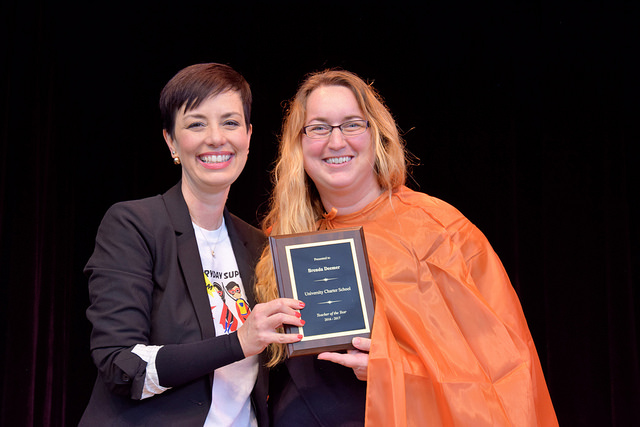
Growing up, Brenda Deemer always felt right at home in the classroom. She often fancied the thought of staying in school forever. Yet later into her adult years, the idea of becoming a teacher never really occurred to her until she started volunteering as a Sunday school teacher at a local church.
“My husband watched me several times then told me that not only did I enjoy prepping for and teaching Sunday school, but that I was good at it and should become a teacher—so I did,” she says.
Her journey to UT-UCS began when she started teaching at the Methodist Children’s Home School, a campus within a nonprofit childcare ministry that serves adolescents who are unable to live at home for various reasons. In 2016, she took on a position at the newly opened Cedar Crest campus in Belton, Texas, where she now serves as lead teacher for students with psychiatric needs.
In addition to teaching and counseling students, she is mentoring teachers, providing administrative duties and communicating with employees at both the Cedar Crest inpatient facility and the UT-UCS campus to ensure they are meeting the students’ needs. Although her work comes with its share of challenges, she enjoys tapping into her creative side and discovering new ways to connect with students.
“I love working with the students because they keep me on my toes,” Deemer adds. “I must continually find new ways to reach them academically and educationally. There is no true one size fits all approach when working with kids and I find the challenge of this changing environment to be rewarding. I work in a unique environment that allows for creativity from teachers and students and I have supportive and caring colleagues and administrators at campus and district levels.”
Although she has a short amount of time with her students at a nontraditional school, she makes every moment count. When asked about the impact of her work, she recalled a recent memory when a student reached a major turning point.
“I’ve always worked with at risk-youth but being at Cedar Crest has really opened my eyes, especially in relation to self-harming behaviors and suicide,” Deemer adds. “Our first graduate almost succumbed to her issues in addition to her discharge date coming soon. Despite all of this, with a lot of support, encouragement and resilience, she completed her graduation requirements at the facility! Ms. Cunningham and I followed up with her in January and learned that she was preparing to enter college to become a sign language interpreter. That is totally awesome!”


